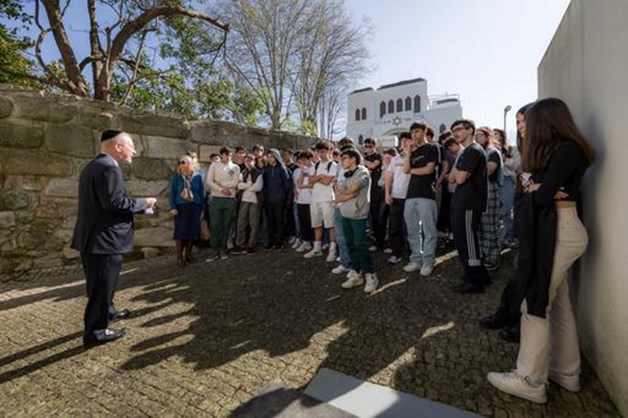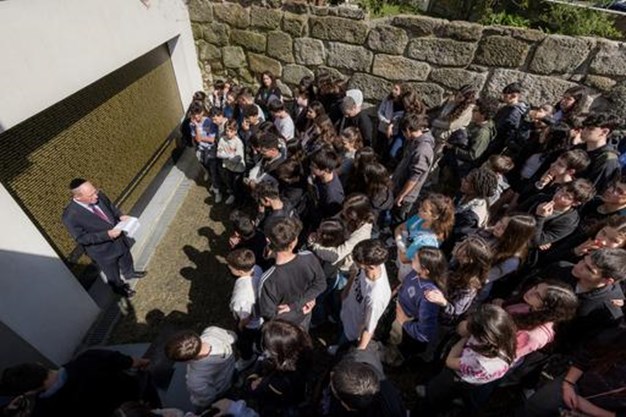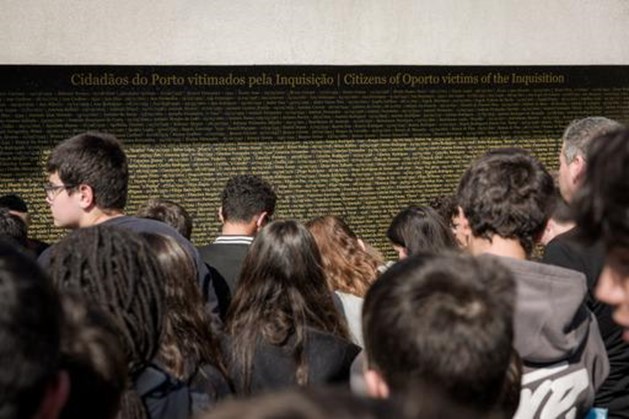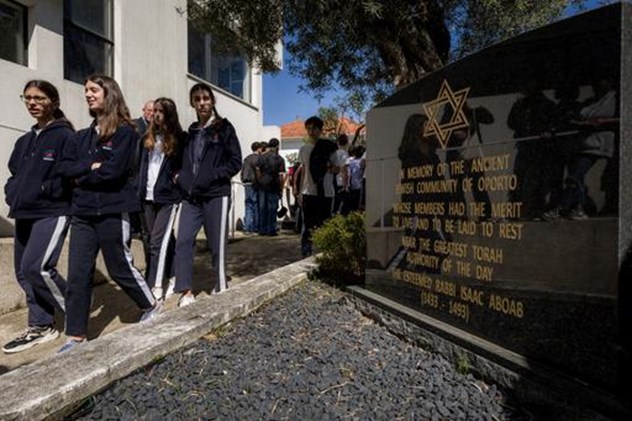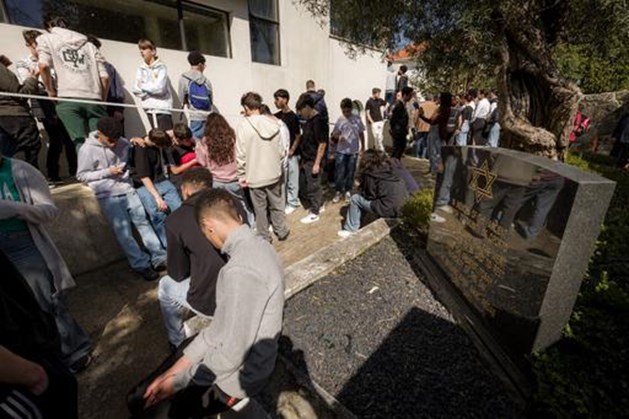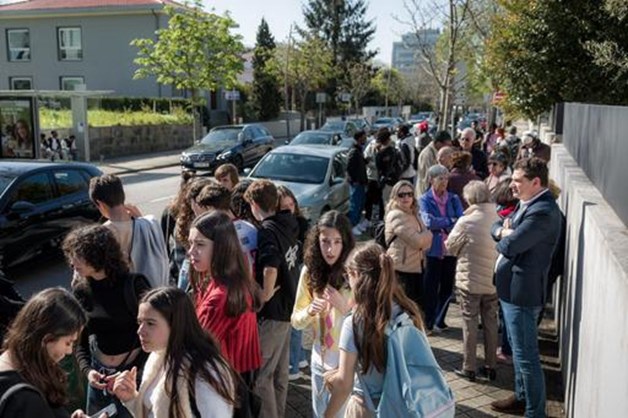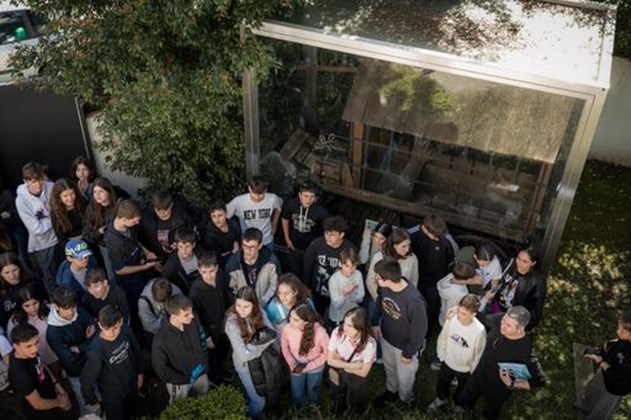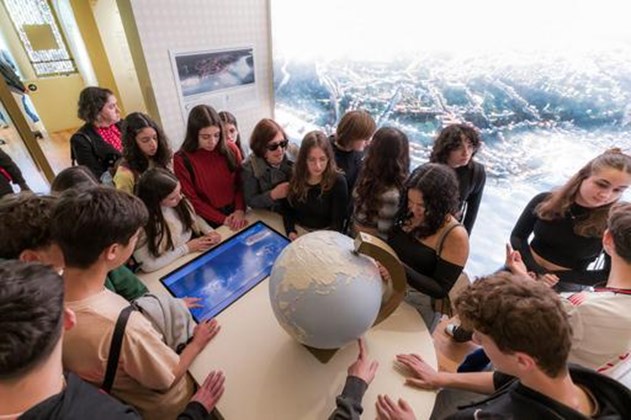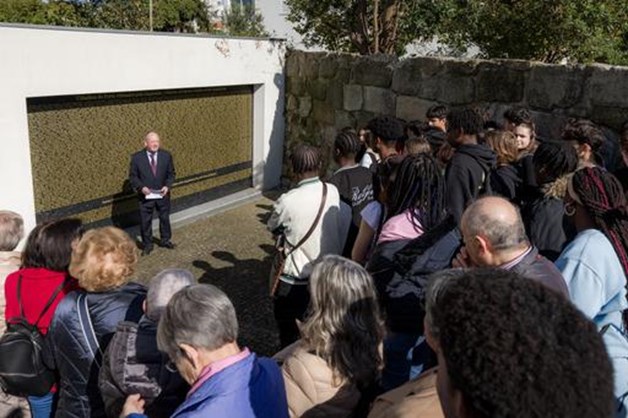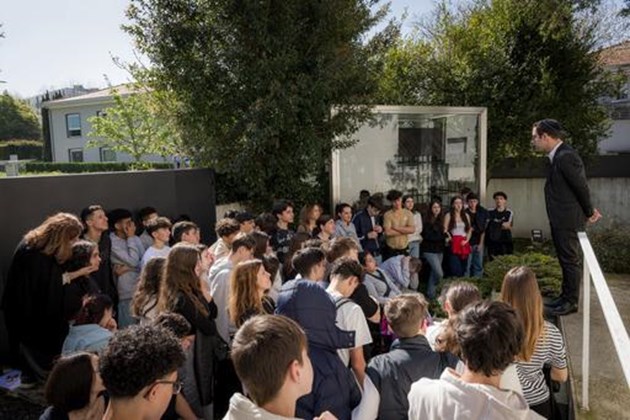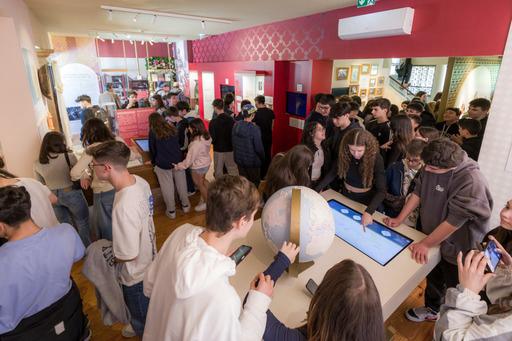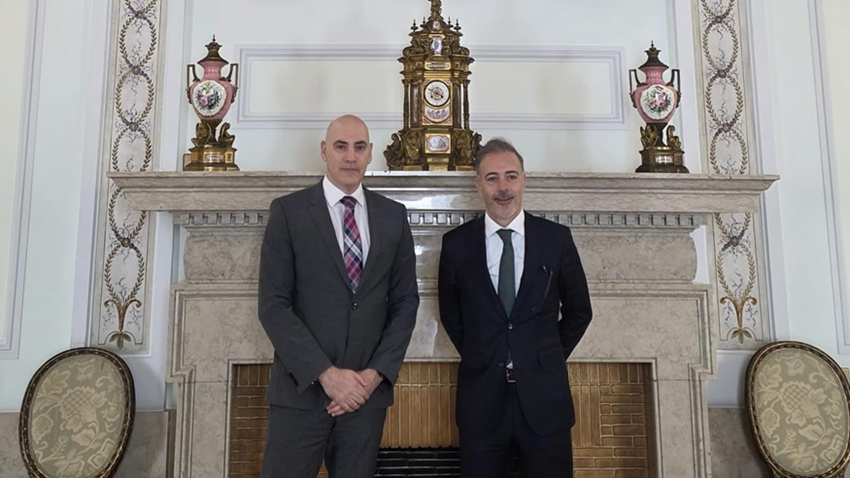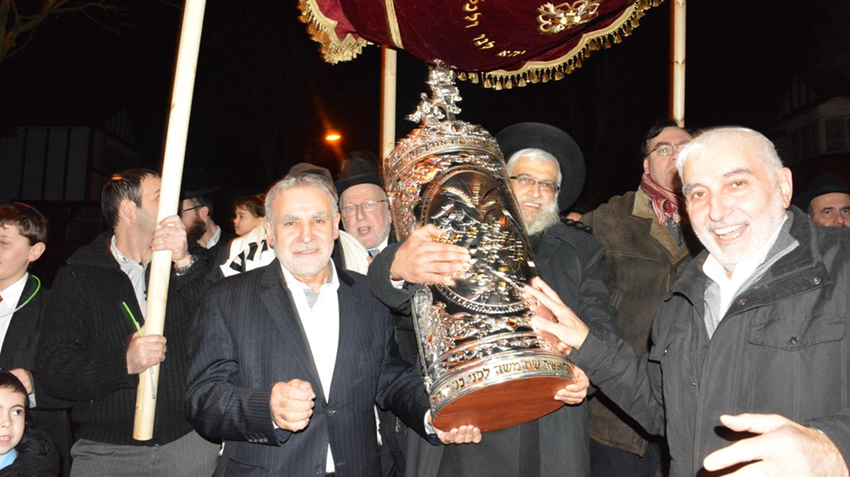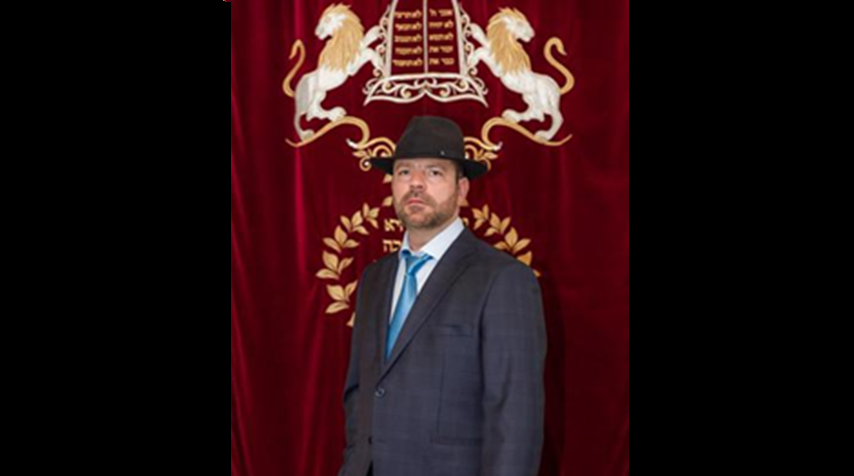Today, 20 March, the Jewish Museum of Oporto welcomed one thousand schoolchildren from all over the country, mainly from the larger cities: Oporto and Lisbon. The event brought forward the National Memorial Day for the Victims of the Inquisition, 31 March, which this year falls on the Catholic Easter Sunday.
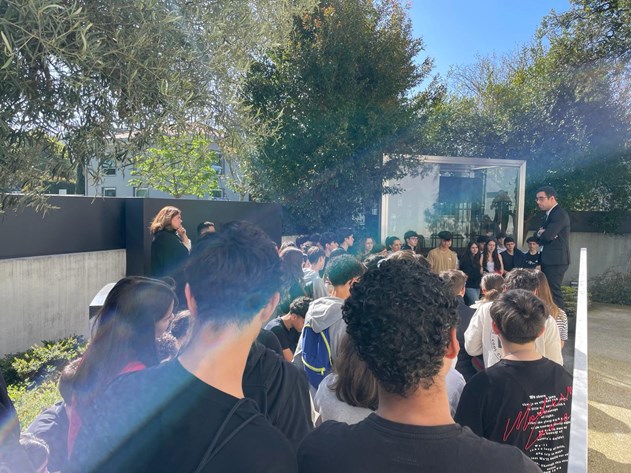
With several rooms dedicated to the history of the Jews around the world and particularly in Portugal, the museum pays particular attention to the period of the Inquisition. Included among objects, both valuable and symbolic, is a replica of the prison-coach dating from the time of the Inquisition, the famous 17th century book “Sentinela Contra os Judeus” (which states that Jews have tails) and a memorial, measuring four metres wide by two metres high, recording the names of 842 victims born in the city of Oporto. Friars, nuns, noblemen, lawyers, market vendors, rich and poor, young and old, all born in the second largest city in Portugal, had their lives destroyed.
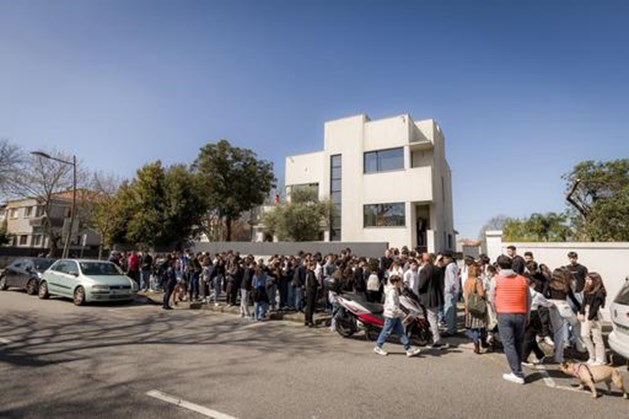
At 110 years of age, Cecília Cardoso was the oldest citizen in Oporto to be persecuted by the Inquisition which accused her of Judaising heresies. Other victims were much younger, including a 10-year old child, as well as several members of the Espinosa family, who confronted that religious tribunal and its methods of torture in the years 1544, 1620 and 1624. Shortly after, Amsterdam saw the birth of the famous Jewish philosopher Baruch Espinosa, son of parents who had abandoned Portugal in search of a safe haven.
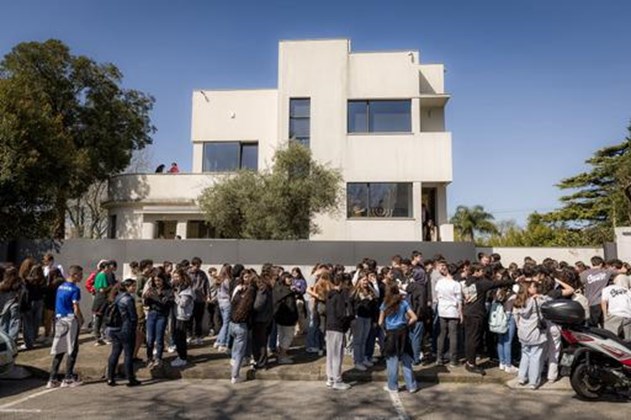
The cinema of the Jewish Museum exhibited striking scenes from the film "1618", about the Inquisition in Oporto. This was the Portuguese film which won the most international awards ever, and was produced in 2019 by the Jewish Community of Oporto.
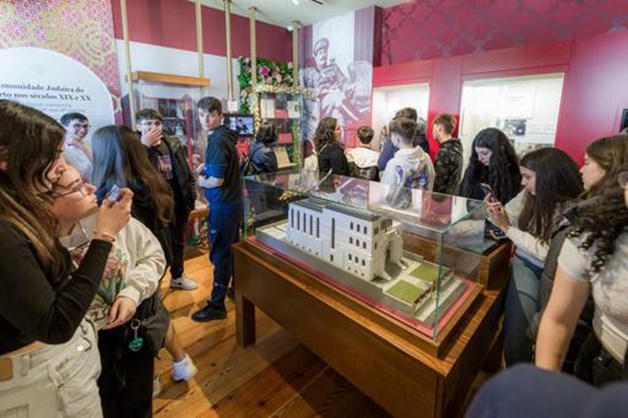
Michael Rothwell, director of the Jewish Museum of Oporto, recalls that the Portuguese Inquisition acted between 1536 and 1821. "For almost three centuries a religious belief or any similarity was forbidden. In the history of humanity there has never been such a systematic and lasting persecution due to such an innocent cause, on any continent”.
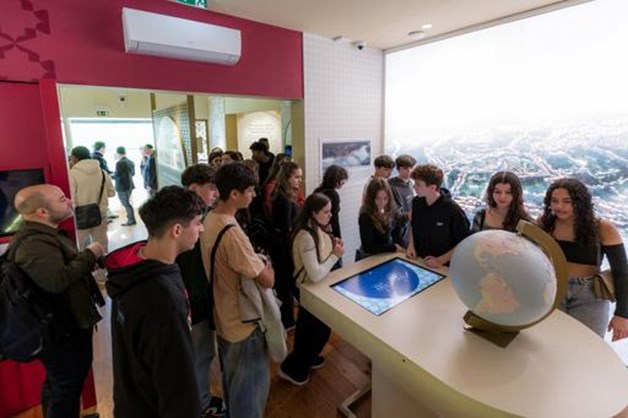
The Jewish Museum of Oporto is always open to schools and to the national and international Jewish community. It is not open to the general public (except on the European Day of Jewish Culture, on the first Sunday in September of each year), because the Portuguese State has not provided security for the venue, rather it said that security was not required, even if paid for by the Community.
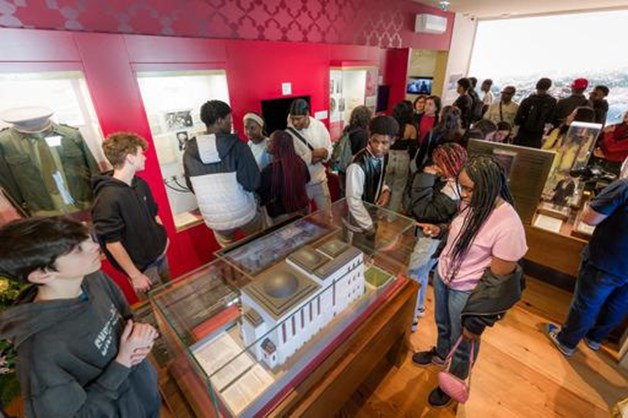
Rothwell explains that “in a Europe with open borders where Jews are a target, we decided not to open to the public, for sooner or later there would be an attack”.
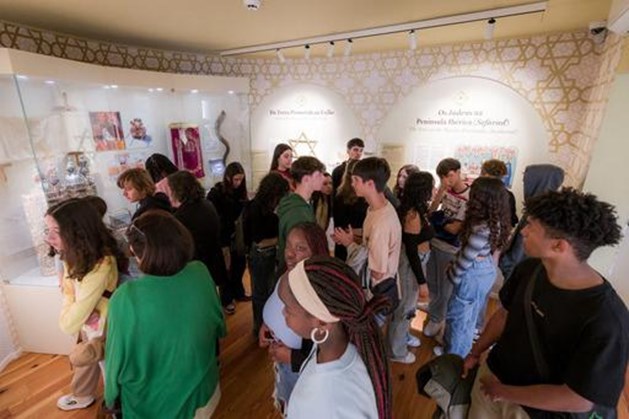
In addition to the Jewish Museum, the Jewish Community of Oporto also has a Holocaust Museum, which was opened in December 2020 and has already received approximately 150 thousand teenagers from schools in Portugal, corresponding to about 15% of the country’s teenage population.
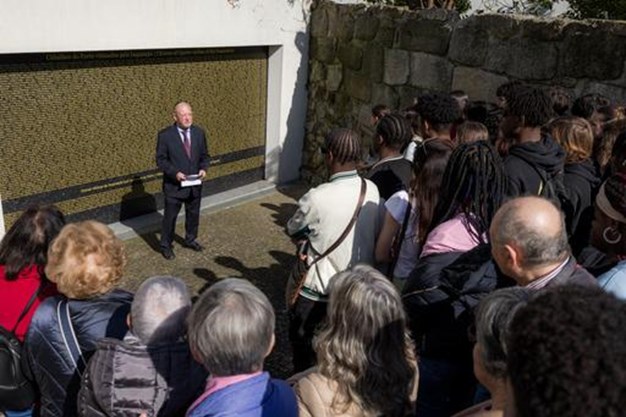
"The two museums complement each other admirably. The Holocaust Museum focuses on the 20th century while the Jewish Museum portrays the presence of the Jews in Portugal from two millennia ago to the 21stcentury”, adds Rothwell.
